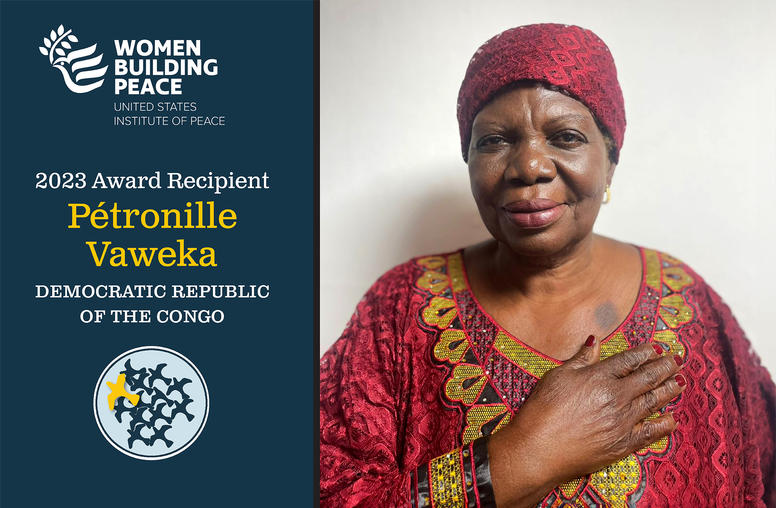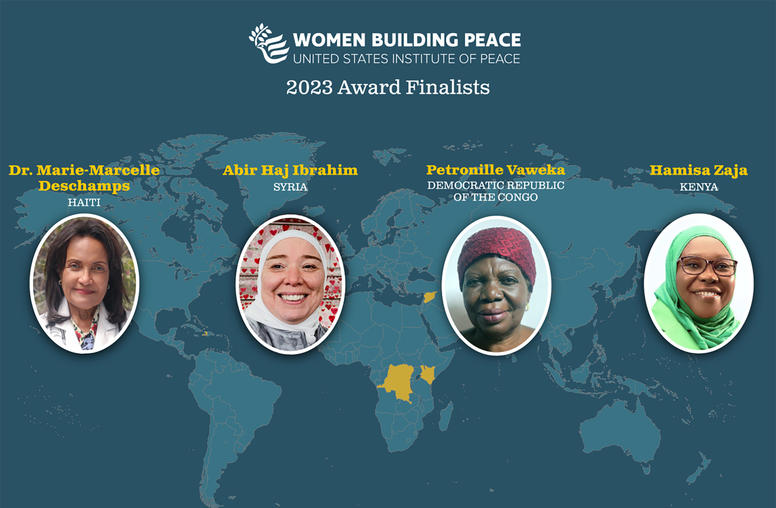Community Colleges Essential to the Success of Internationalized Education
New Book from USIP Press: "Peacebuilding in Community Colleges: A Teaching Resource" by David J. Smith
For Immediate Release
Contact: Paula Burke, 202-429-4778
Steven Ruder, 202-429-3825
(Washington)—The United States Institute of Peace releases a new volume that identifies community colleges as major force in strengthening global education and promoting broad-based educational strategies to advance peace. Edited by David J. Smith and including contributions by 23 experts from the education and peacebuilding field, Peacebuilding in Community Colleges: A Teaching Resource is designed to guide educators and administrators in building peace studies, conflict resolution, or global education programs at the two-year college level.
While community colleges have become an important fixture on the American educational landscape, the concept of using education to promote peacebuilding is relatively new but increasingly vital at two-year colleges. A peacebuilding education can offer appreciation and understanding of international events, thereby increasing public engagement, teaching attitudes and skills necessary for employment in a globalized world, and promoting people-to-people diplomacy. Broadening students’ network of learning experiences is part of the community college’s mission, role, and scope in producing responsible citizens, and peace studies program support those goals.
Reaching students of all ages, ethnicities, cultural groups, and personal circumstances, community colleges currently enroll nearly 44 percent of all American undergraduates. Increasing student cultural and ethnic diversity is challenging educators to focus on personal and group conflict and violence not only in local contexts but also in distant communities where immigrant populations originate. Thus, teaching peace today in community colleges has both local and international dimensions.
“Because of their open enrollment, ethnic and cultural diversity, adaptability to changing societal needs, and focus on community-building, two-year colleges are a critical linchpin to the success of these efforts,” says David Smith. “The next generation of peacebuilders can most certainly be found in today’s community colleges. The key will be to provide them with the tools necessary to engage them in solving some of the most pressing problems we face today.”
About the Editor
A former senior manager for educational outreach in USIP's Global Peacebuilding Center, David J. Smith is a conflict resolution practitioner and educator. He currently serves as chair of the Human Rights Commission of Rockville, Maryland, and teaches at George Mason University’s School for Conflict Analysis and Resolution.
About the United States Institute of Peace
The United States Institute of Peace is an independent, nonpartisan conflict management center created by Congress to prevent and mitigate international conflict through nonviolent means. USIP saves lives, increases the government’s ability to deal with conflicts before they escalate, reduces government costs, and enhances national security. USIP is headquartered in Washington, DC. To learn more, visit www.usip.org.
Peacebuilding in Community Colleges: A Teaching Resource
United States Institute of Peace Press
June 2013 • 248 pp. • 6 x 9 • $29.95 (paper) • ISBN: 978-1-60127-147-1

